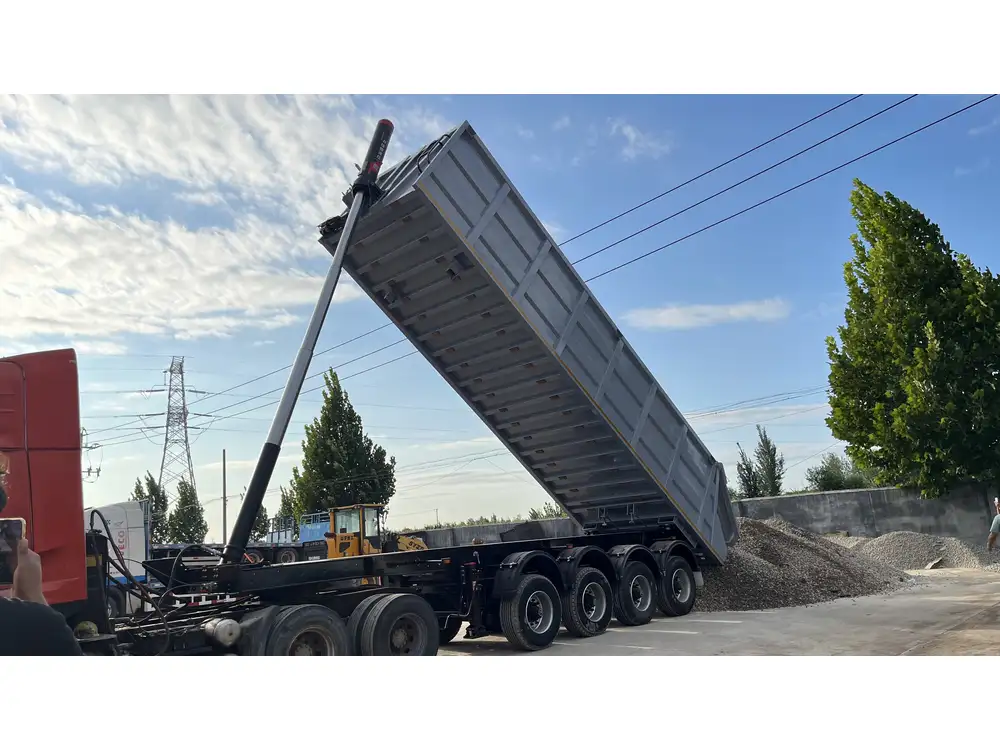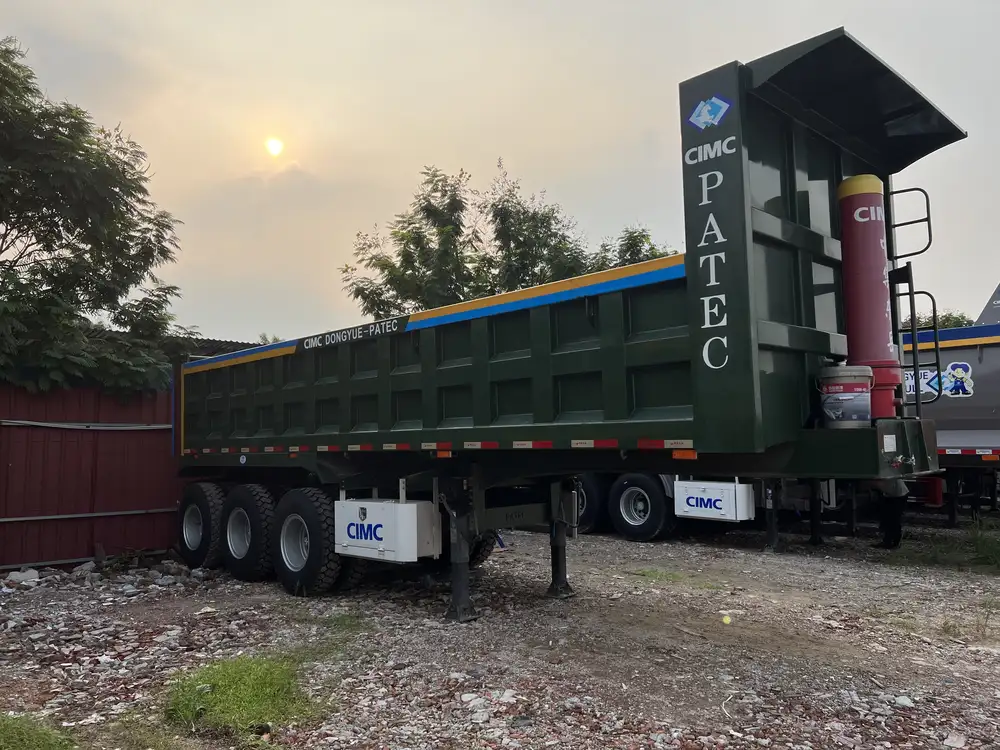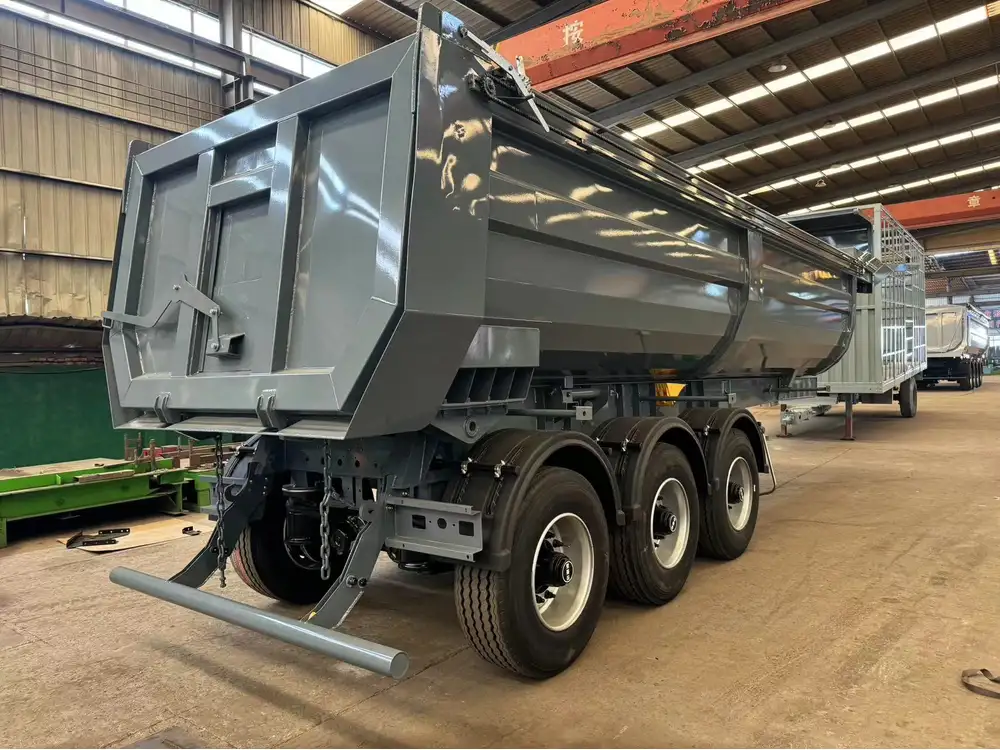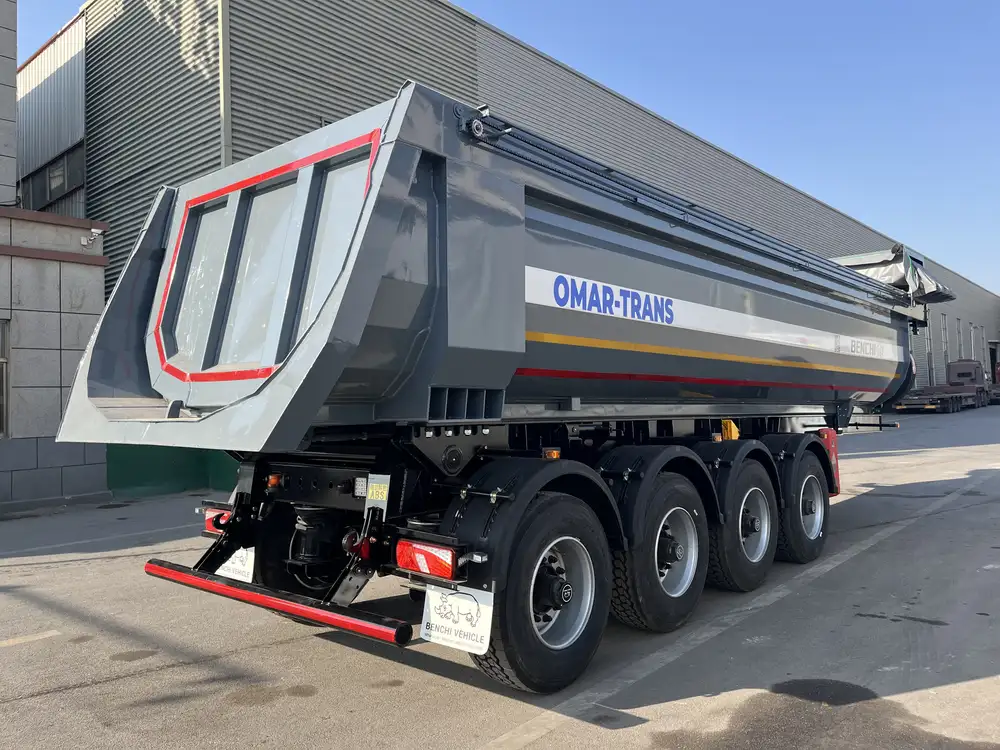In the realm of heavy-duty transportation, belly dump trailers stand out for their unique design and operational efficiency. This article aims to dissect everything there is to know about belly dump trailers, including their construction, advantages, applications, and maintenance practices. Our goal is to provide both novice and experienced users with an in-depth understanding that can guide purchasing decisions and operational practices.
Understanding Belly Dump Trailers
Belly dump trailers are specialized types of dump trailers, characterized by their high-capacity and unique dumping mechanism. Unlike conventional dump trailers that discharge contents from the rear, belly dump trailers release their payload through a bottom gate. This design allows for rapid and controlled unloading, making them invaluable in specific applications.
Structure of a Belly Dump Trailer
| Component | Description |
|---|---|
| Chassis | Typically constructed from high-strength steel to withstand heavy loads and road conditions. |
| Tipping Mechanism | Operates via hydraulic systems, which allow for precise control when opening the belly gates. |
| Axles | Generally features two to three axles, enhancing stability and load capacity. |
| Hopper Design | V-shaped hoppers facilitate even flow of materials during unloading. |
| Safety Features | Equipped with safety chains, reflective tape, and load distribution systems to ensure safe operation. |

Benefits of Belly Dump Trailers
Belly dump trailers offer several advantages over traditional dumping mechanisms, making them popular in various industries. Understanding these benefits is crucial for operators and fleet managers.
Efficient Unloading
The design of belly dump trailers enables faster unloading times. The ability to dump material simultaneously from both sides reduces operational delays, especially in busy construction or agricultural settings.
Versatility in Material Handling
Belly dumps are ideal for transporting a wide range of materials, including:
- Aggregates: Such as sand, gravel, and crushed stone.
- Soils: Perfect for construction sites and landscaping projects.
- Asphalt: Commonly used in road construction.
- Fertilizers: Utilized in agricultural applications.

Improved Weight Distribution
The low center of gravity in belly dump trailers means they are less prone to tipping over compared to other trailer types, especially during off-loading. This stability enhances safety for operators and reduces the likelihood of accidents on site.
Enhanced Control
The hydraulic system used in belly dump trailers allows for better precision in unloading. Operators can deliver the payload more accurately, reducing waste and improving overall job site efficiency.
Applications of Belly Dump Trailers
Belly dump trailers serve various industries, each requiring their unique capabilities. Here are some prominent applications:

Construction Industry
Within the construction realm, belly dump trailers are indispensable for transporting aggregates to site locations. This includes the delivery of gravel and crushed stone for road base, backfill, and drainage applications. Their quick unloading capabilities allow for speedier project timelines.
Agricultural Sector
Farmers and agricultural business owners utilize belly dump trailers for efficient transport and distribution of fertilizer, seed, and other bulk materials. The trailer’s ability to discharge product quickly and evenly improves efficiency during planting and fertilization seasons.
Road Maintenance and Paving
Belly dumps play a crucial role in road construction and maintenance. They are commonly used to transport asphalt and concrete. The rapid discharge capability enables quick application, leading to reduced project turnaround times.

Landscaping and Land Development
In landscaping applications, belly dump trailers transport topsoil, mulch, and decorative aggregates. The controlled dumping feature assists landscapers in achieving desired depths and distributions of materials on site.
Key Features to Consider When Purchasing a Belly Dump Trailer
When considering the acquisition of a belly dump trailer, several key features should be evaluated to ensure the selected model meets operational requirements.
Payload Capacity
Belly dump trailers come in various capacities, typically ranging from 20 to 30 cubic yards. Choose a trailer that maximizes your payload without exceeding local weight restrictions.

Trailer Length and Width
The dimensions of the trailer should align with your transport needs and state regulations. Standard lengths range from 30 to 45 feet, with varying widths that depend on the model.
Construction Material
A robust construction material, like high-strength steel, is crucial for durability and longevity. Look for models that offer corrosion resistance, especially if the trailer will frequently handle caustic materials.
Axle Configuration
Choose between single, tandem, or tri-axle trailers based on expected load demands. More axles typically offer better weight distribution, but they may also incur higher operational costs.

Hydraulic System Quality
Since the unloading functionality relies on the hydraulic system, invest in models with reliable and efficient hydraulic components to ensure smooth operation.
Maintenance Tips for Belly Dump Trailers
Proper maintenance of belly dump trailers ensures longevity and optimal performance. Below are some best practices:
Regular Inspections
Conduct routine inspections to check for signs of wear on hydraulic lines, tires, and chassis components. Early detection can prevent costly repairs and prolong trailer life.

Lubrication
Regularly lubricate moving parts, particularly within the hydraulic system, to reduce friction and wear over time.
Cleaning
After hauling materials, clean the trailer to remove debris, which can lead to corrosion and mechanical failure if left unaddressed.
Tire Maintenance
Check tire pressure and tread regularly to ensure safe operation. Uneven tire wear can indicate an axle alignment issue, necessitating immediate attention.

Safety Equipment Checks
Confirm that all safety features, including reflective strips and chains, are intact and operational. Regularly replacing worn safety equipment helps mitigate risks on the job site.
Cost Considerations for Belly Dump Trailers
Understanding the cost factors involved in purchasing and operating belly dump trailers is vital for making informed decisions.
Initial Purchase Price
The price of belly dump trailers can vary significantly, influenced by factors like brand, size, and features. On average, expect to pay anywhere from $30,000 to $60,000 for a new unit. Investing in high-quality trailers can lead to better resale values and lower maintenance costs.

Operating Costs
Operating costs include fuel consumption, routine maintenance, and repair expenses. Belly dump trailers, due to their efficient hydraulic systems, often provide competitive fuel efficiency, leading to lower overall operating costs.
Insurance
Proper insurance coverage is necessary to protect your investment. Costs vary based on factors including operating history, trailer value, and type of cargo being transported.
Depreciation
Like all vehicles, belly dump trailers depreciate over time. Understanding the projected depreciation can assist in calculating total cost of ownership and assessing potential resale value.

Conclusion
Belly dump trailers are pivotal in various industries, offering unmatched benefits in terms of efficiency, versatility, and safety. Their unique design and operational capabilities make them ideal for specific applications, particularly in construction and agriculture. Understanding their structure, advantages, and maintenance needs equips operators and fleet managers to make informed decisions, ensuring optimal performance and longevity of these essential transport vehicles.
By leveraging the information provided in this article, stakeholders can better appreciate the intricacies of belly dump trailers and navigate the complexities associated with choosing and operating these vital equipment pieces. Whether you are a seasoned operator or contemplating your first purchase, this guide serves as an essential resource, keeping you and your fleet ahead in the industry.



